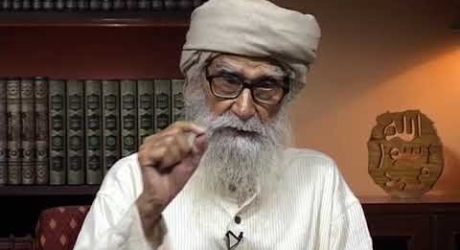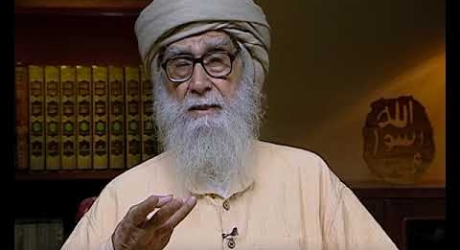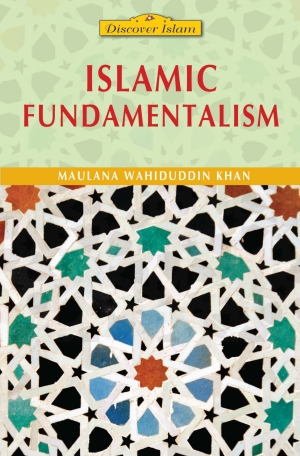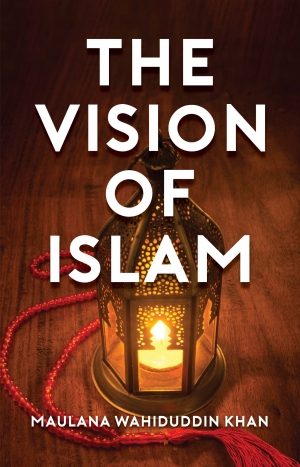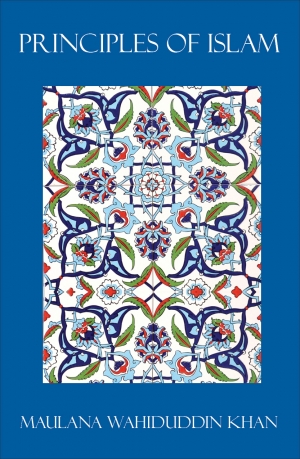Here are ten references from the Quran and Hadith that may be considered universal principles suitable for every man and woman, irrespective of religion and/or culture: Mutual Respect, Reconciliation and Adjustment, Peace, Practical Wisdom, Positive Response, Modesty, Result-oriented Action, Friendly Behaviour, Unilateral Good Character and Universal Brotherhood. They are formulae for life or the art of life management. Tawheed, or the oneness of God, and peace—are the two fundamental principles of Islam.
The following verse of the Quran advises us of the correct Islamic Principles in any dealings with enemies—
“And who is better in speech than he who invites men to the service of God, and does good works, and says, “I am sure of those who submit”? And good and evil are not alike. Requite evil with good, and he who is your enemy will become your dearest friend.” (41:33-34)
It shows that according to the teachings of Islam, our duty is not to annihilate any enemies but to befriend them. According to Islam, everyone is born with a good nature. However, sometimes, people temporarily go against their natural selves and become ‘enemies’. However, if they are treated with unilateral good behaviour, they will return to their original nature. Moreover, past enemies will be transformed into friends of the present.
Featured Articles
Featured Videos
FAQs
Islamic culture is one of mercy (rahmat). The aspect of mercy in Islam is so prominent that it engulfs the entire lives of those who have fully adopted the principles of Islam.
Islam teaches its followers that, when they meet one another, they should address one another with such words as “May peace and God’s blessings be upon you.’ Even when one sneezes, he should say, ‘May God be praised’, and the others sitting with him will respond ‘May God bless you.’ When the believer enters the mosque, he should say: ‘May God open the gates of mercy to me.’ Similarly, when worshippers have concluded their prayer, they are to turn their faces sideways and say: ‘May God’s blessings and peace be upon you.’
In this way, on all occasions and at every stage, the phrases of peace and mercy come readily to the lips of the believer. Thinking and speaking in terms of mercy become the distinguishing features of the believers. Their whole life is moulded by the demands of mercy and compassion.
The Prophet often uttered such phrases as ‘May God bless the man, may God bless the woman.’ This goes to show what type of attitude Islam wants to develop in its adherents. This is the culture of Rahmat and Love. Islam demands that on all occasions human beings should be well intentioned towards one another; on all occasions man should offer the gifts of love and compassion to others. Even in moments of conflict, such words come to the lips of the believers: “May God have mercy on you, why did you say or do such and such a thing?”
God is All-Merciful. He desires his servants to live in this world as merciful creatures.
Source: Simple Wisdom
Two basic source books of Islam are the Quran and the Hadith. The Quran is believed to be the word of God, and the Hadith is the compilation of the sayings of the Prophet of Islam. The Quran contains about 6,500 verses while the Hadith contains about 25,000 sayings of the Prophet of Islam. Islamic teachings cover almost all the aspects of human life like belief, worship, morality, spirituality, social structure, etc.
Here are ten references from the Quran and Hadith that may be considered universal principles suitable for every man and woman, irrespective of religion and/or culture. They are formulae for life or an art of life management.
Mutual Respect: How to live in a multi-religious society? The Quranic answer to this question is found in this verse: “For you your religion; for me mine.” This principle is based on religious tolerance. It may be formulated in a sentence as ‘Follow one and respect all.’
Reconciliation and Adjustment: How to behave at the time of conflict? The Quran says, “Reconciliation is the best.” It means that at the time of conflict, we have to adopt a conciliatory rather than confrontational course of action.
Peace: The Prophet of Islam said, “God grants to non-violence what He does not grant to violence.” (Sahih Muslim, Hadith No. 6766) In other words, peaceful methods are always far more effective than violent methods.
Practical Wisdom: According to a Hadith the general policy of the Prophet of Islam was that whenever the Prophet of Islam had to choose between two options he always chose the easier option rather than the harder one. This was the general policy of Islam in every matter.
Positive Response: A person once came to the Prophet of Islam and asked, “O Prophet, give me some master advice by which I may be able to manage all the affairs of my life.” The Prophet replied, “Do not be angry.” It means that we must not react with anger even when provoked. Respond positively to negative situations. Always adopt positive thinking.
Modesty: The Prophet of Islam said, “God elevates the modest.” In other words, modesty is the way to high success.
Result-oriented Action: The Prophet of Islam said, “The beauty of a man is to keep himself away from futile activities, which produce no results.” Our actions should be always result-oriented.
Friendly Behaviour: The Prophet of Islam said, “He is not a believer who creates problems for his neighbours.”
Unilateral Good Character: The Quran says: “Good and evil deeds are not equal. Repel evil with what is good, then you will see that one who was once your enemy has become your dearest friend.” Our behaviour in society should not be retaliatory but good under all circumstances.
Universal Brotherhood: The Prophet of Islam said, “I bear witness that all human beings are brothers and sisters to each other.” This concept inculcates the feeling of universal brotherhood in all of us, and it is on this basis that a better society can be formed.
Source: Spirit of Islam August 2013
In mutual dealings in social life, it often happens that a person gives his word to another. There is apparently no third person or group between the two, yet there is always a third present and that is God who is the supreme witness. That is why every promise becomes a divine promise. Therefore, man should be extremely sensitive about giving his word. His conviction should be that every commitment made between two persons is under the watchful eyes of God, and that he will be accountable for its fulfilment in the court of God. This compels him to be highly responsible as regards his promises. Whenever he gives his word to anyone he should make it a point to keep it.
People who invariably fulfil their promises are predictable characters in a society, and give their society that particular quality which exists on a vast scale throughout the universe. Every part of this universe is functioning with the most exact precision. For instance, we can learn in advance about any star’s or planet’s rotation, and where it will be moving after a hundred or even a thousand years. Similarly, we know in advance what the boiling point of water will be. In this way the entire universe evinces a predictable character.
Many other virtues come in the wake of the regular fulfilment of promises. One of these is mutual trust. In a society where mutual trust exists, there is no discord and dissension between people; there is an atmosphere of confidence and peacefulness as there is no fear of promises being broken.
Readiness to fulfil promises is a commendable trait, and it is spirituality that makes man the possessor of this highest of human virtues.
Source: Spirit of Islam June 2013
Patience is the exercise of restraint in trying situations. It is a virtue, which enables the individual to proceed towards worthy goals, undeterred by adverse circumstances or repeated provocations. If he allows himself to become upset by opposition, taunts or other kinds of unpleasantness, he will never reach his goals. He will simply become enmeshed in irrelevancies.
The only way to deal with the irksome side of daily living is to exercise patience. Patience will ensure that whenever one has some bitter experience, he will opt for the way of tolerance rather than that of reaction to provocation. It will enable one to absorb shocks and to continue undeterred on one’s onward journey.
Sabr or Patience, as well as being a practical solution to the problems faced in the outside world, is also a means of positive character building. One who fails to exercise patience gives free rein to negative thoughts and feelings, and develops a personality, which is likewise negative; while one who remains patient is so morally bolstered by his own positive thoughts and feelings that he develops a positive personality.
Sabr is no retreat. Sabr only amounts to taking the initiative along the path of wisdom and reason as opposed to the path of emotions. Sabr gives one the strength to restrain one’s emotions in delicate situations and rather to use one’s brains to find a course of action along result-oriented lines.
The present world is fashioned in such a way that everyone is necessarily confronted with unpleasant matters at one time or another. Unbearable circumstances have to be borne somehow; harrowing events have to be witnessed and all kinds of pain have to be suffered. In such situations, succumbing to impatience leads to the kind of unnecessary emotional involvement which is counter-productive, while a demonstration of patience has a healing, beneficial effect, allowing one to tread the path of discreet avoidance.
Success in the present world is destined only for those who adopt the path of patience in adverse circumstances.
Source: Spirit of Islam June 2013






